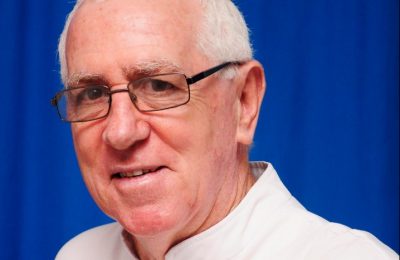Reverend Father Andrew Campbell has opened up about how the 1970 ‘Troubles’ of Ireland, over two decades down the line, is still affecting priesthood and Catholicism in the country.
During an interview on YFM’s Y-Leaderboard Series which segments on the Myd-Morning Radio Show, he mentioned that majority of the people in Northern-Ireland are Catholics and almost everyone was brought up as a Catholic, however, since that conflict, things have not been as great with Catholicism as it used to be.
“It was this Catholic country but we had problems years ago when England came and took over our country. We got back 26 countries and left 6 countries to the North but they’re still under the UK and we were all brought up as Catholics in the Catholic tradition”.
Father Campbell recalled how churches were everywhere in Ireland with plenty of priests, however, he noted things have changed since the Troubles and there are only a few priests and fewer people going to church. “Things have changed a lot so when I go home, I find it a bit more difficult now”, he said.
The troubles, also known internationally as the Northern-Ireland conflict was an ethno-nationalist conflict in Northern Ireland that occurred during the late 20th century. The conflict began in the late 1960s when the ‘Unionists’, who were mostly Ulster protestants wanted Northern Ireland to remain within the United Kingdom and the Irish nationalists who were mostly Irish Catholics, wanted Northern Ireland to leave the United Kingdom and join a United Ireland.
The conflict ended with the Good Friday Agreement which was signed on 10 April, 1998 after intense negotiations between the UK government, the Irish government and Northern Ireland where both parties agreed to share power. The agreement acknowledged that the majority of the people of Northern Ireland wished to remain a part of the United Kingdom and that a substantial section of the people of Northern Ireland, and the majority of the people of the island of Ireland, wished to bring about a united Ireland.
By: Maureen Dedei Quaye
ADVERTISEMENT
















